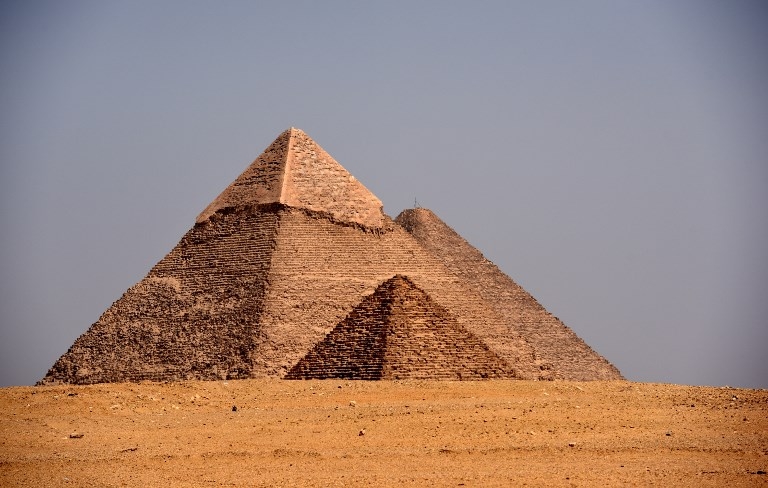In the shadow of the pyramids, Cairo community split over demolitions

Egyptian authorities arrested 22 people and demolished two properties in a neighbourhood of Cairo on Monday, in a case that has highlighted the issue of informal areas in the Egyptian capital.
Residents of Nazlet al-Samman, a neighbourhood adjacent to the Giza Necropolis, the Great Sphinx and the pyramids, protested on Monday over fears that Giza governorate authorities were pushing to demolish the entire area, despite authorities saying that they would only destroy four properties for “building without a license on a heritage site”.
Local media said that some inhabitants of Nazlet al-Samman, which is known to be pro-government, participated in the demolition operation along with the authorities. Others protested after it happened, fearing that their community would meet the same fate as al-Warraq and Maspero.
These two Cairo neighbourhoods were demolished in 2016 to make way for a private investment project, with Egyptian authorities compensating the inhabitants of Warraq and Maspero below the market value for their properties.
The majority of inhabitants in Nazlet al-Samman work in tourism, as many own shops adjacent to the pyramids selling memorabilia and ancient Egyptian clothes or give horseback tours to foreign tourists. Upper storeys of the demolished properties were used as a hostel for tourists.
In 2000, the Egyptian government built a wall to stop any expansion of Nazlet al-Samman from infringing on the site of the pyramids. The wall affected residents' business, as it prevented tourists from accessing the neighbourhood.
In February 2011, horse and camel owners of Nazlet al-Samman were mobilised by then-President Hosni Mubarak and launched an assault against protesters in Tahrir Square calling for regime change.
The events of 2 February 2011, now widely known in Egypt as the Battle of the Camel, occurred days before Mubarak stepped down.
One of Nazlet al-Samman's inhabitants whose home was demolished on Monday said she and her family were supporters of President Abdel Fattah el-Sisi and that she "cursed the Muslim Brotherhood and supported the regime" - but added that she now had nowhere to go.
While Egyptian media opposed to Sisi raised the possibility that demolitions in Nazlet al-Samman could extend beyond the four houses currently targeted, news outlets more favourable to the Egyptian president were split on the issue - while most expressed sympathy for the largely pro-government residents of Nazlet al-Samman, at least one called for the four properties to be razed.
Almost 70 percent of Cairo's 20-million strong population live in areas that have been developed informally or extra-legally since 1960.
New MEE newsletter: Jerusalem Dispatch
Sign up to get the latest insights and analysis on Israel-Palestine, alongside Turkey Unpacked and other MEE newsletters
Middle East Eye delivers independent and unrivalled coverage and analysis of the Middle East, North Africa and beyond. To learn more about republishing this content and the associated fees, please fill out this form. More about MEE can be found here.




